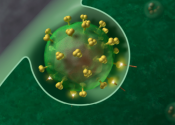Study could clarify how microbes can exacerbate cognitive decline
Recent research has found that changes in the gut microbiota—the trillions of bacteria and other microbes that live in the intestines—can alter the brain and behavior. Now, a study led by scientists at UCLA could elucidate ...
Aug 17, 2021
0
753









